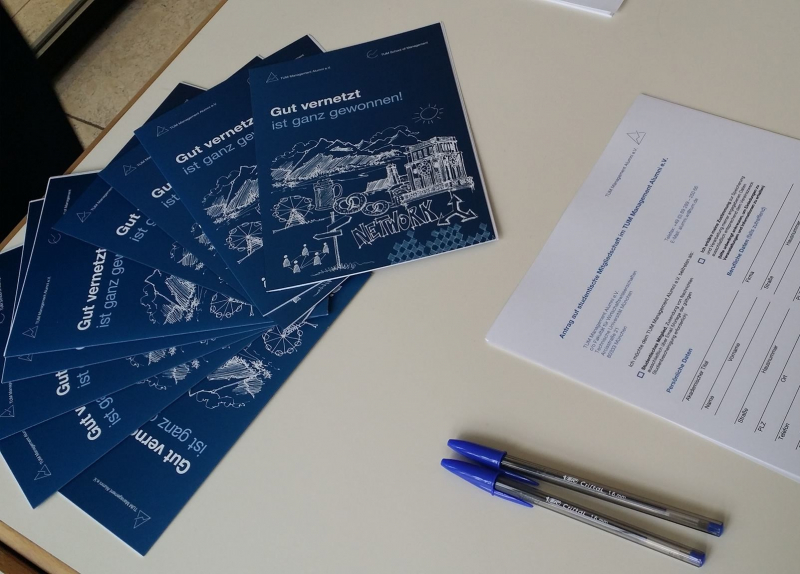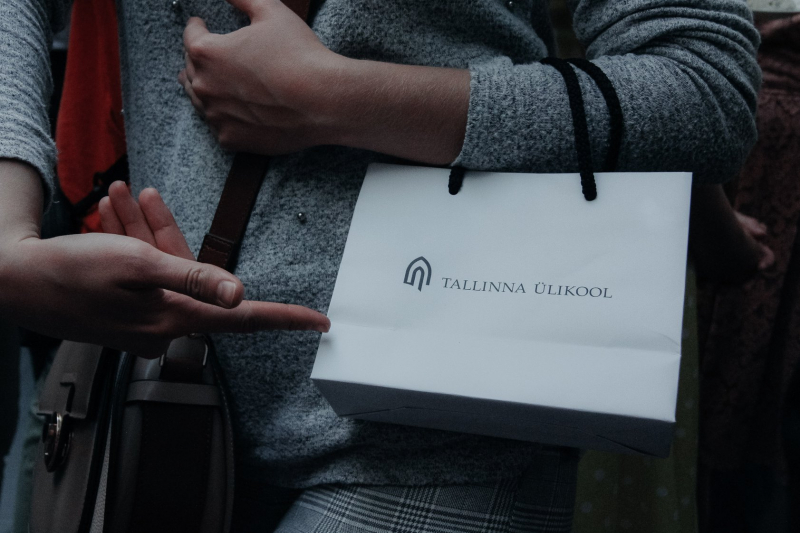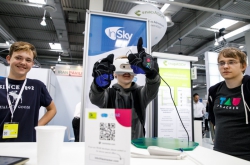The end of the year is near, which means that it’s time to think about ways to make the most out of the upcoming winter season. Many universities have already opened applications for their annual schools. This year, they will all take place online – at least for international students.
We also would like to remind you that all tuition-free students from ITMO University can participate in the competition for partial funding support. ITMO University can reimburse up to 70% of the tuition fee. You can find more information on how to apply here.
TU Berlin Winter University Online (Technical University of Berlin, Germany)

Instead of a conventional winter school, the Technical University of Berlin offers three-week online intensive courses that might be useful for specialists in big data analysis, machine learning, and VR development, as well as for urbanists and ecologists.
When: January 11-29, 2021 + one extra preliminary week
Application deadline: December 20, 2020
Tuition fee: 920€ for students. If you apply before November 1, you will get a 50€ discount.
Requirements: a certificate proving English language proficiency (at least B2 level) and proof that you have been studying at a university for at least one year
How to apply: register here
More info is available here.
Extended Reality: Design and Development
An introductory course on virtual, augmented, and mixed reality, as well as on user interaction, basic UX design, and using Unity to create 3D scenes.
More info is available here.
Introduction to Python Programming
A course suitable for students with no previous experience in programming. It’s divided into two parts: basic Python programming and more advanced Python programming using modules for data processing and visualization.
More info is available here.
Machine Learning using Python: Theory and Application
Requirements: basic programming skills (any language) and basic knowledge of linear algebra and statistics
A practical intensive course where students will be able to use machine learning methods in order to solve globally relevant tasks and overcome challenges. Theory behind the most popular modules, such as linear and logistic regression, neural networks, principal component analysis, will also be covered.
More info is available here.
Data Science with Python
Requirements: basic programming skills (any language) and basic knowledge of linear algebra and statistics
This course will focus on using Python for big data analysis. Both basic object-oriented programming and more advanced use of Python libraries, such as Numpy, Pandas, and Matplotlib, will be covered. As a result, the participants will have expertise in data processing and analysis and will be able to implement basic algorithms of machine learning in their work.
More info is available here.
Circular Economy: Introduction and Urban Prototyping
This course is intended for those who want to improve their knowledge of circular economics and a systematic approach to regulation of urban resources, such as water, electricity, food, and waste. The students will be able to design prototypes for a sustainable economy and develop their own model of urban resource management.
More info is available here.
TUM School of Management (Technical University of Munich, Germany)

Sustainable Entrepreneurship
When: January 18-February 1, 2021
Application deadline: December 14, 2020
Tuition fee: 790€. If you apply before November 14, you will get a 100€ discount.
Requirements: being a Master’s student
How to apply: send your CV and motivation letter describing your experience in entrepreneurship and sustainable development to the curator of the course
The Technical University of Munich’s School of Management offers a two-week course on sustainable entrepreneurship. The participants will be able to attend lectures on the UN’s 17 sustainable development goals, as well as global challenges and ways to overcome them as an entrepreneur. You will also learn how to work with the Business Model Canvas, rapid prototyping, and storytelling.
More info is available here.
Tallinn Winter School (Tallinn University, Estonia)

Gamification workshop
When: January 11-15, 2021
Application deadline: December 1, 2020
Tuition fee: 200€
How to apply: register here
This five-day course covers various ways of gamification that can be applied in the fields of marketing, business, education, and so on. The participants will learn about actual examples of successful gamification and the psychology behind it, as well as will be able to create their own prototypes.
More info is available here.
Design of serious games
When: January 18-22, 2021
Application deadline: December 1, 2020
Tuition fee: 200€
How to apply: register here
The course is based on study materials of the international Digital Learning Games Master’s program that is focused on development of games designed for purposes other than just entertainment. Among such purposes are education, science, urban planning, engineering, and so on. During the course, the participants will learn about the use of game technologies in the creation of educational or scientific projects, basic game design, narrative, and gameplay. Then, they will apply these skills and create their own prototype.
More info is available here.
Digital innovation for civic engagement projects
When: January 11-20, 2021
Application deadline: December 1, 2020
Tuition fee: 300€ for students
How to apply: register here
The participants will be able to study real examples of the application of digital tools in civic initiatives and community transformation. The course will be led by experts from the Citizen OS Foundation, a non-commercial organization based in Tallinn but functional all over the world.
More info is available here.
The VU Graduate Winter School (VU Amsterdam, Netherlands)

When: January 11-15, 2021
Application deadline: December 1, 2020
Tuition fee: 600€ for students
Requirements: being a second-year Master’s student
How to apply: register here
VU Amsterdam holds several short intensive courses on modern methods of scientific research, including data analysis, big data processing, and machine learning.
Programming in Python – Beginner Level
An applied course for quick introduction to Python programming. You will learn how to code simple programs and what basic principles of programming and lifehacks there are. This knowledge will greatly help you grow in this field further.
More info is available here.
Data Analysis in R
Requirements: basic knowledge of statistics
At this course, you will learn the basics of statistical programming using R and how to understand and interpret statistical models created using special software.
More info is available here.
Automated Content Analysis using Python
The course covers methods of working with big data for linguistic textual analysis. The participants will learn basic Python programming and modern research tools: data retrieval with web scraping, automatic content analysis, natural language processing, and so on.
More info is available here.
Econometrics of Networks
At this course you’ll learn the latest methods of econometrics that combine statistical and mathematical analysis with economic theory. The key point of the program is understanding of the interaction between the market, society, politics, and industry, as well as the ability to analyze these processes using mathematical tools.
More info is available here.
Meta-analysis: Know-how and Beyond
Requirements: basic knowledge of statistics
The participants will learn how to use meta-analysis with JASP for research, look for information in open sources, interpret it, and create reports according to the PRISMA statement. All lectures are supplemented by individual tasks.
More info is available here.
University of Amsterdam Winter School (University of Amsterdam, Netherlands)

Digital Methods
When: January 4-8, 2021
Application deadline: November 16, 2020
Tuition fee: 695€
How to apply: send your CV, a motivation letter, a headshot photo, a 100-word bio, and a copy of your passport (details page only) to winterschool@digitalmethods.net
This is an annual course led by the Digital Methods Initiative research team. This year, it’s dedicated to the problems of algorithms and lack of objectivity of recommendation systems on the web. The participants will study examples of price discrimination, political motivations, stereotypes being used in algorithms, and so on.
More info is available here.
Key Topics in Urban Studies
When: January 18-29, 2021
Application deadline: December 15, 2020
Tuition fee: 750€
How to apply: sign up on the university’s website (the registration fee is 25€)
A two-week course on urban studies that includes lectures, seminars, and video tours. It will cover such topics as gentrification, smart cities, sustainable economics, environmentally friendly resource use, creation of communities and interaction inside of them.
More info is available here.





